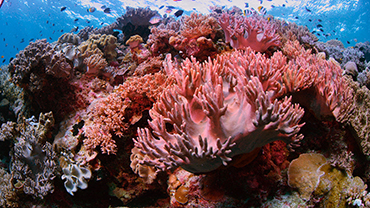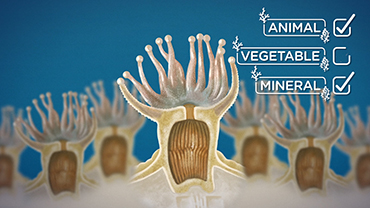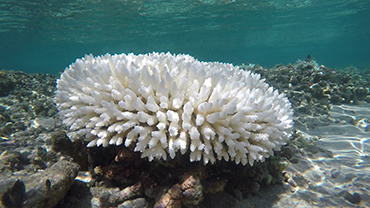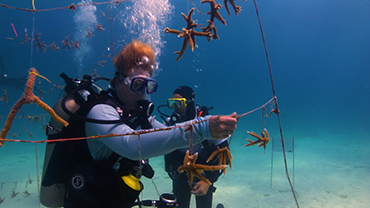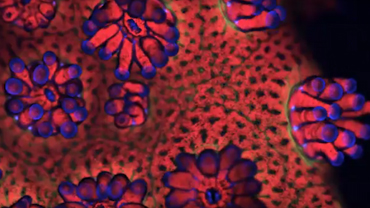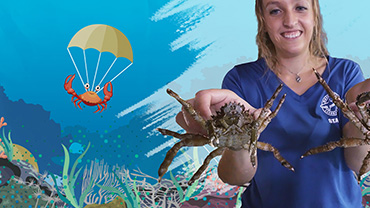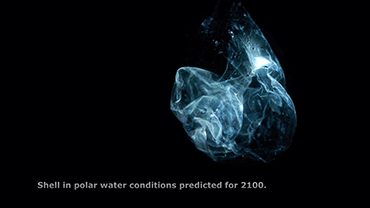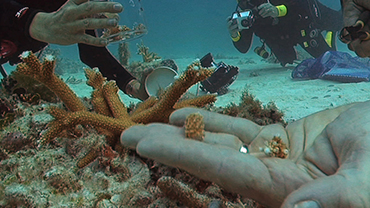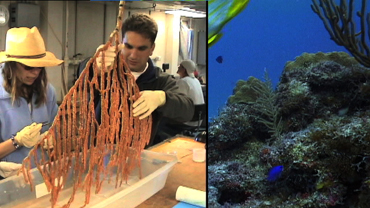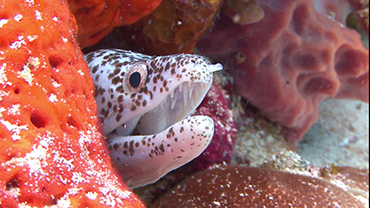Transcript
NARRATOR:
Ashlee Steinberg: Coral reefs and ocean habitats are experiencing a number of challenges right now. We've had a lot of coral losses, unfortunately.
TV Anchor: and experts fear it's about to get worse. Ocean temperatures have surged past old record highs, the coral teetering on their tipping point.
Ashlee Steinberg: But there have been certain individuals who have survived these heating events and these disease events. And we want to take those corals and preserve them for future research and also to outplant them again on the reef when it is safe to do so. And there's a chance that a few or even hundreds of them will be the next generation of our reef. We also have other researchers here who are dealing with crab research in order to focus on the herbivory on the reef, because algae growth is out of control.
Cierra Bair: The algae has taken over that open real estate that was left open by the loss of coral. These grazers or crabs and urchins and snails play maintenance. They are the cleanup crew. So what we're about to do is feed them. This is one of the many algaes that we hope for them to clean off of the reefs. And we're essentially going to show you how good of grazers they are. The crabs, they will come in and they'll eat all of that algae. And so they are perfect for what we're trying to do to offset the damage done of too much algae taking up space.
This is one of our females. They are growing crabs and helping crabs reproduce so that we are doing a team effort to help better restore corals. When we go to the reefs and we put the coral out and we put the crab out, they can go out there and try to rebuild in this newer way.
Ashlee Steinberg: Working with organizations like NOAA is essential to further innovations for coral research. Every one of us has different ideas that we bring to the table and different specialties. Mote does a fantastic job of employing a vast array of scientists. What we are doing now can give the reef the building blocks to help itself in the future. We are just trying to give it that head start to allow the corals to come back on their own and reproduce naturally in the wild.
 An official website of the United States government.
Here's how you know we're official.
An official website of the United States government.
Here's how you know we're official.


